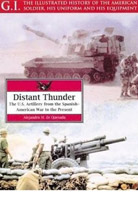Reading Hitler's Mind (Hardback)
The Intelligence Failure that led to WW2

Pages: 240
Illustrations: 16 mono illustrations
ISBN: 9781399086271
Published: 8th June 2022
(click here for international delivery rates)
Order within the next 10 hours, 36 minutes to get your order processed the next working day!
Need a currency converter? Check XE.com for live rates
| Other formats available - Buy the Hardback and get the eBook for £1.99! | Price |
|---|---|
| Reading Hitler's Mind ePub (3.8 MB) Add to Basket | £6.99 |
Most strongly associated with Prime Minister Neville Chamberlain, it is often stated that Britain’s policy of appeasement was instituted in the 1930s in the hope of avoiding war with Hitler’s Nazi Germany. At the time, appeasement was viewed by many as a popular and seemingly pragmatic policy.
In this book the author sets out to show how appeasement was not a naïve attempt to secure a lasting peace by resolving German grievances, but a means of buying time for rearmament. By the middle of the 1930s, British policy was based on the presumption that the balance of power had already dramatically shifted in Germany’s favour. It was felt that Britain, chiefly for economic reasons, was unable to restore the balance, and that extensive concessions to Germany would not satisfy Hitler, whose aggressive policies intensified the already high risk of war..
The only realistic option, and one that was clearly adopted by Neville Chamberlain, was to try to influence the timing of the inevitable military confrontation and, in the meantime, pursue a steady and economically sustainable programme of rearmament. Appeasement would ‘buy’ that time for the British government.
Crucially this strategy required continuously updated and accurate information about the strength, current and future, of the German armed forces, especially the Luftwaffe, and an understanding of their military strategy. Piercing the Nazis’ veil of secrecy was vital if the intelligence services were to build up a true picture of the extent of German rearmament and the purposes to which it might be put.
The many agents, codebreakers, and counter-espionage personnel played a vital role in maximising the benefits that appeasement provided – even as war clouds continued to gather. These individuals were increasingly handed greater responsibility in a bid to inform British statesmen now scrambling to prepare for a catastrophic confrontation with Germany.
In Reading Hitler’s Mind, Norman Ridley reveals the remarkable efforts made by the tiny, underfunded and often side-lined British intelligence services as they sought to inform those whose role it was to make decisions upon which the wheels of history turned.
As featured by
International Journal of Intelligence and Counterintelligence
"...serves as a useful and insightful introduction to a crucial period in world history, with lessons for both the intelligence scholar and the history enthusiast."
American Intelligence Journal
Anyone who is interested in the 1930s diplomacy, and the dynamics and motives of the British policy of Appeasement which was pursued at this time, needs to obtain a copy of this book.
Jon Sandison
An excellent book and quite thought-provoking, and certainly a book I would recommend.
The History Fella
Read the Full Review Here
An inherently fascinating, informative, and iconoclastic study, "Reading Hitler's Mind: The Intelligence Failure that led to WW2" is a thoughtful and thought-provoking read.
Midwest Book Review
A unique and exceptionally well researched study, "Reading Hitler's Mind: The Intelligence Failure that led to WW2" is a welcome and recommended addition to personal, professional, community, and academic library World War II history collections and supplemental curriculum studies lists.
An astonishing look at how the British Secret Service personnel attempted to second guess Adolf Hitler in the run up to WWII.
Books Monthly
About Norman Ridley
NORMAN RIDLEY is an Open University Honours Graduate who writes about the less well covered aspects of 20th Century history. He lives in the Channel Islands.




















